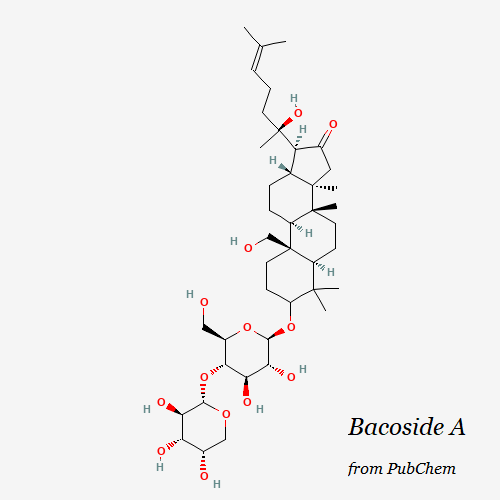Introduction
Bacopa monnieri, also known as water hyssop or Brahmi, is a creeping, perennial herb native to India and other parts of Asia. The plant has small, succulent, oblong leaves and white flowers, and grows low and spreading, typically in moist soils and swamps throughout the Indian subcontinent and parts of Southeast Asia, as well as in other warm, tropical areas of the world. In Sanskrit, Bacopa is known as jalabrahmi, meaning “water brahmi,” in reference to its preference for growing in wet, swampy environments. For the same reason, it is also known in English as water hyssop. Bacopa monnieri is often used as a natural nootropic or cognitive enhancer.
Bacopa in traditional medicine
The plant Bacopa monnieri has been used in various cultures for centuries. It is still used today in Ayurvedic medicine and Traditional Chinese Medicine (TCM) as a natural remedy for various health conditions, particularly as a brain tonic to improve memory, learning and cognitive functions.
Dioscorides, the ancient Greek physician and botanist, did not mention Bacopa in his famous work “De Materia Medica,” which was one of the most influential works on phytotherapy in the Greco-Roman and Western world throughout the Middle Ages and until almost a few centuries ago.
In Ayurvedic medicine, a traditional system of medicine originating in India, Bacopa is classified as Medhya Rasayana, or an herb that rejuvenates the brain and nervous system and is used to promote mental health, improve memory and concentration. Among the various Ayurvedic medicinal herbs, Bacopa monnieri is considered a grace herb and commonly known as Brahmi, it has a rich historical and religious background for more than 1,400 years.
In TCM, Bacopa is believed to nourish the kidneys and liver, promote blood circulation, and improve brain function. Bacopa is commonly used in TCM to treat conditions such as anxiety, depression, and cognitive impairment. It is believed to have a calming effect on the mind and may help improve memory, concentration, and mental clarity.
Bacopa in modern medicine
Bacopa monnieri has been the subject of numerous studies in modern medicine for its potential effects in improving cognition and memory.
Several types of studies have been conducted: in vitro, in vivo in laboratory animal models, and clinical trials. Several studies, both in experimental models and in humans, have suggested that Bacopa may have beneficial effects on cognitive function, memory, and attention. Some studies have also suggested that Bacopa may have potential benefits for anxiety, depression, and stress.

Bacopa possesses active ingredients that belong to the categories of alkaloids, glycosides, flavonoids, and saponins. Bacosides are major components of Bacopa monnieri and play an essential role in neuronal health. Structurally, bacoside-A is a chemical compound containing both sterols and sugars; 12 bacoside analogs have been identified and characterized. Bacosides protect neurons from cytotoxicity and DNA damage and help repair damaged neurons by increasing kinase activity and neuronal synthesis. Bacosides A and B are responsible for most of the neuropharmacological and nootropic effects of B. monnieri. Bacoside A is more pharmacologically active than bacoside B.
In animal models of Alzheimer’s disease, Bacopa has been shown to suppress beta-amyloid deposition in the brain. In a rat model of Alzheimer’s disease, the alcoholic extract of B. monnieri was reported to significantly improve escape latency in the Morris water maze, a test used to assess brain function.
Bacopa’s effects on the brain are thought to be due to its ability to increase the production of neurotransmitters such as acetylcholine, serotonin, and GABA, as well as its antioxidant properties.